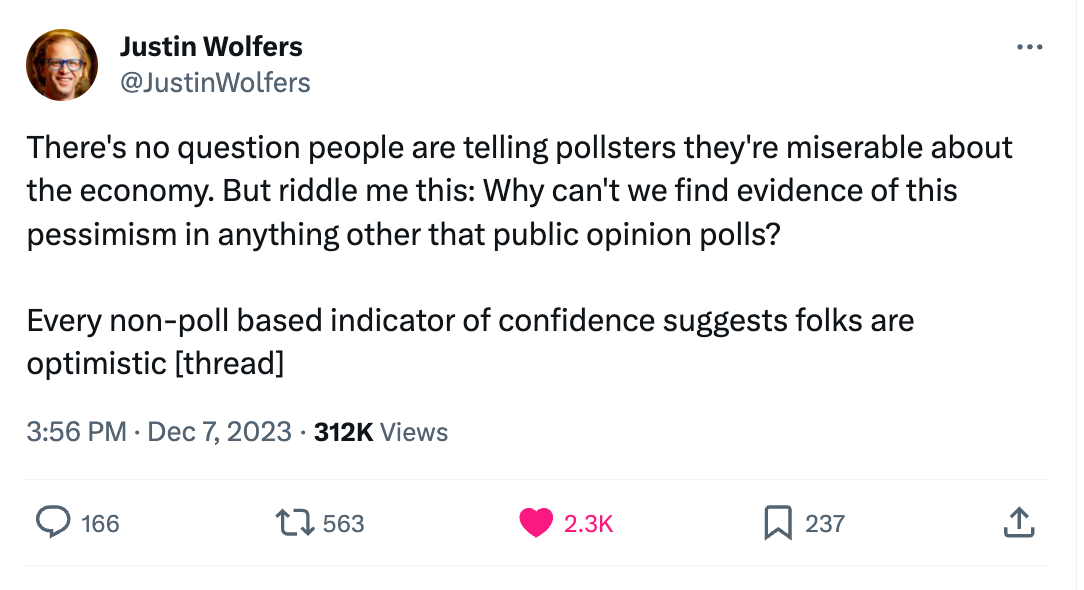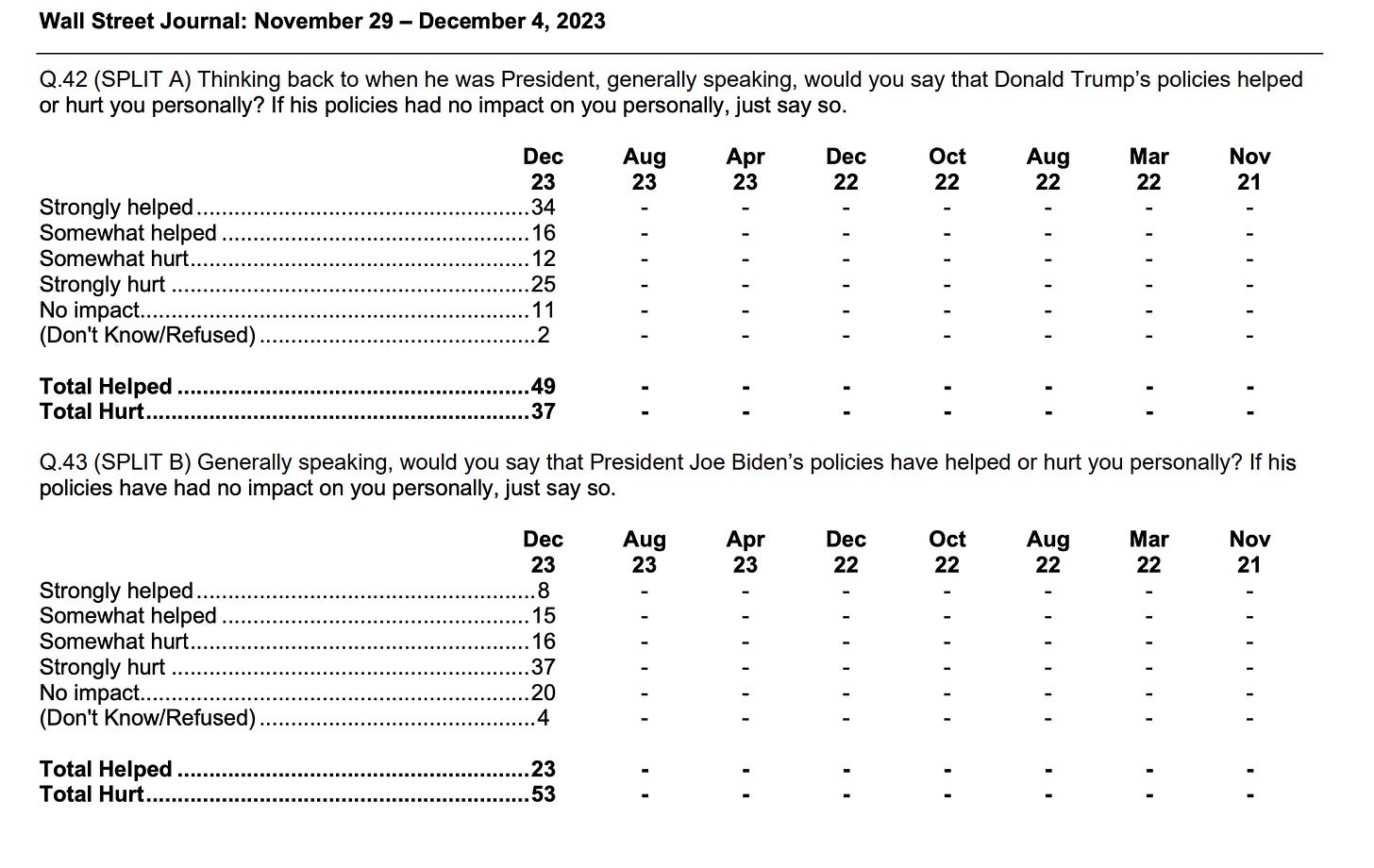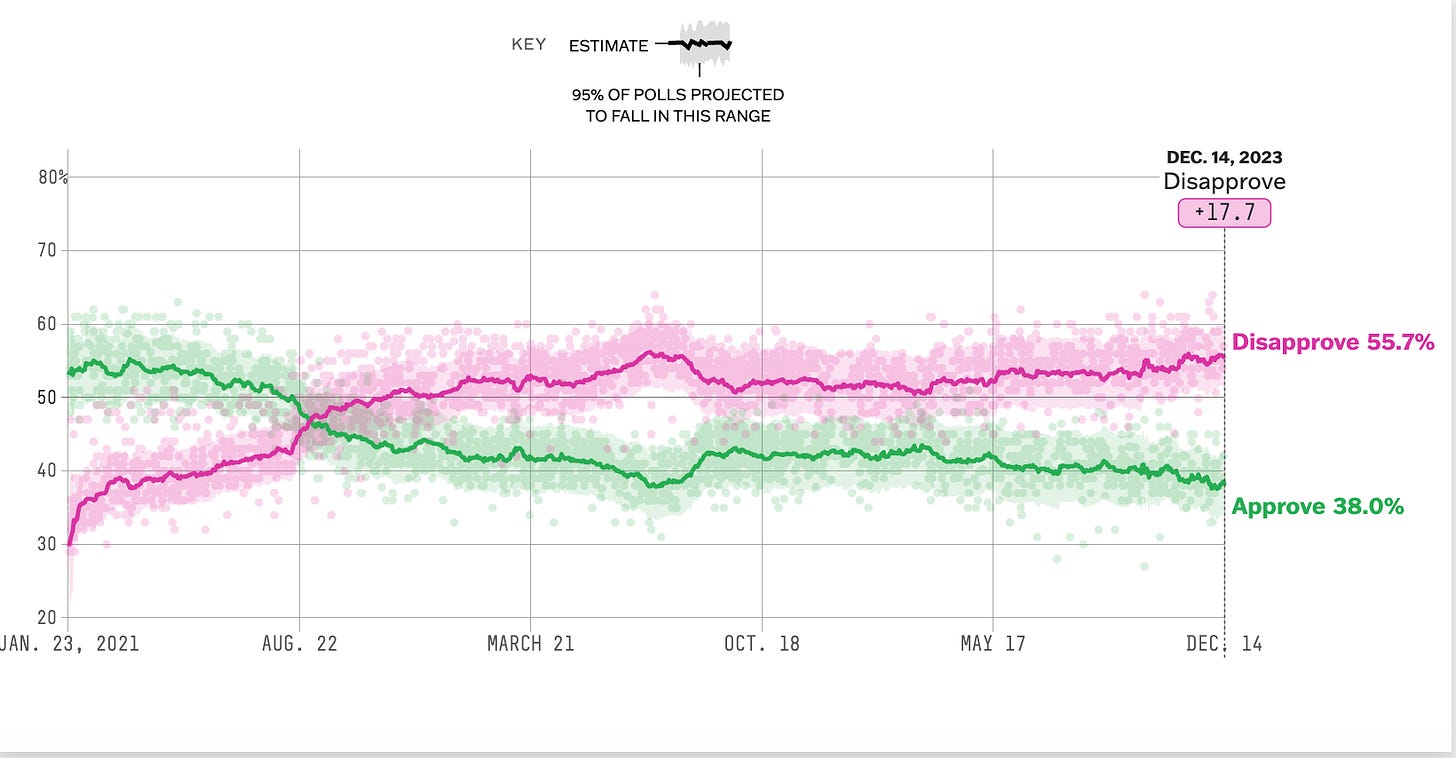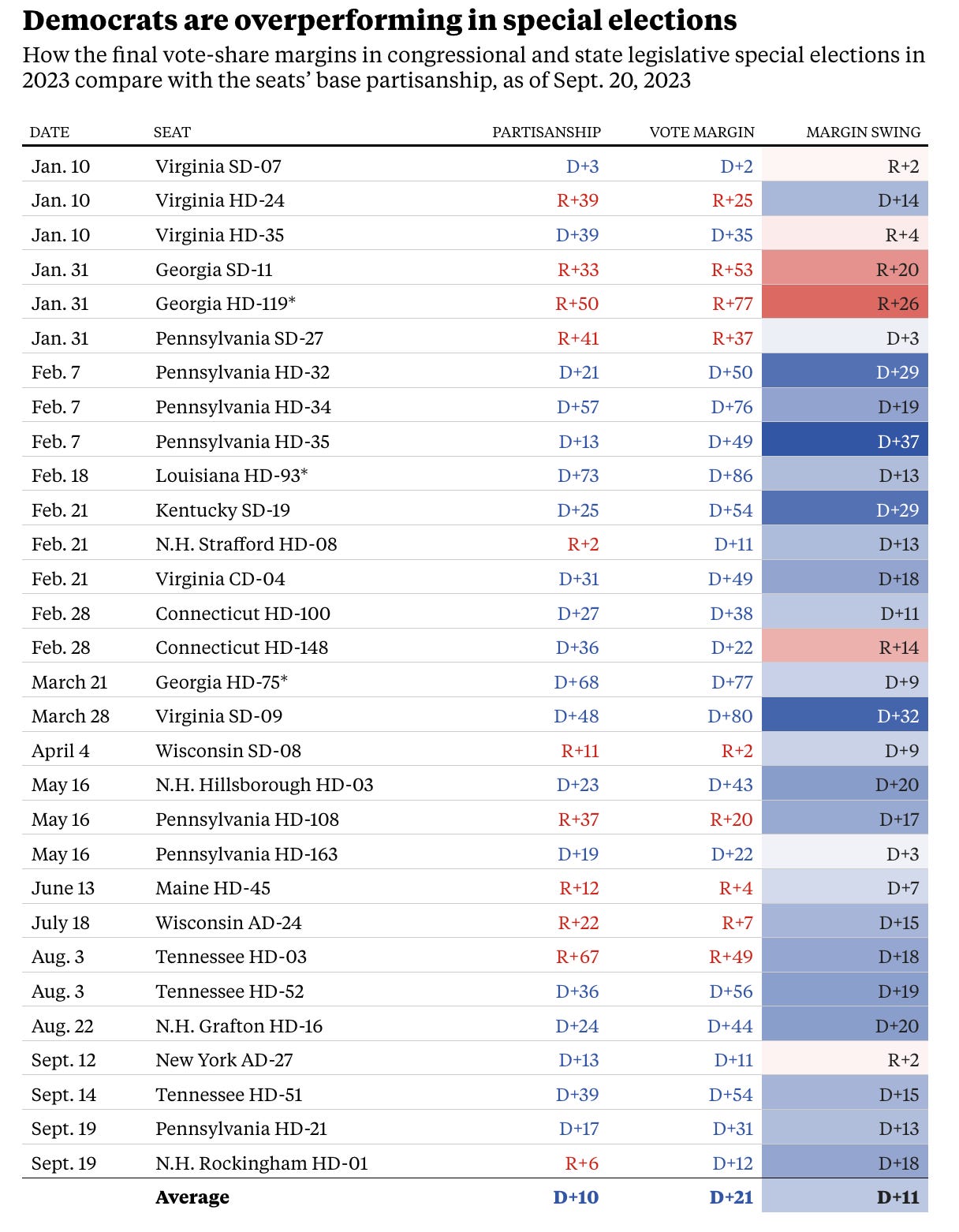The Enduring Mystery of Joe Biden's Lousy Poll Numbers
Plus, a look at civilian casualties in Gaza and what Harvard's President got wrong in her congressional testimony
I’m Michael A. Cohen, and this is Truth and Consequences: A no-holds-barred look at the absurdities, hypocrisies, and surreality. If you were sent this email or are a free subscriber and would like to become a paid subscriber, you can sign up here.
If money is tight or you’re already up to eyeballs in subscriptions, here’s another idea — share this article. Email it to a friend (or even an enemy). Post it on Facebook, Twitter, or LinkedIn. Text or email it to your wife, husband, mother, father, brother, sister, or even your creepy second cousin in Tierra del Fuego. Word of mouth is often the best way to build support for a creative endeavor, so if everyone here sends it to just one person … it would be much appreciated!
What’s Up With Biden’s Polls? Pt. 1
I had this exchange this week with a friend who is a Republican-leaning public opinion analyst.
I posed this question to 2 or 3 other people and got a near-identical response.
What got me thinking about this issue was a tweet from Justin Wolfers, an economist at the University of Michigan.
Check out the whole thread here, but as Wolfers points out, consumers are spending money like it’s running out of style. Businesses are investing at huge rates. People are starting small businesses at record totals and are more likely to quit their jobs. Also, the stock market just hit an all-time high this week. Yet, polling shows that popular views on the economy are terrible and that consumer sentiment is lower now than in April 2009, when we were in the midst of an actual economic recession.
I know inflation is still bad, and the impact of higher interest rates on home buying is a significant issue. Still, unemployment is historically low, wage growth is strong, and people are spending like they have few concerns about their economic future.
As for Biden, this result from a recent Wall Street Journal .. IS INSANE.
By a 50/37 margin, voters say Trump’s policies helped them personally. By a 23/53 margin, they say Biden’s policies hurt more than helped.
I know Americans have short memories and don’t pay much attention to politics, but my god. Have we all just forgotten that Trump was president during a global pandemic and that it ended under Biden?
I get that Biden is old and, at times, appears ineffectual, but these numbers are still hard to figure.
The thing is, Biden’s numbers continue to get worse and worse.
(It’s worth pointing out something very interesting from this chart. After March 2021, when Biden’s numbers started to fall off, his greatest improvement came in Fall 2022, or right before the midterm elections. That might circumstantially suggest that voters upset with Biden now might come around in November 2024 when an election is looming and the choice is between him or Trump).
But it’s the politics of this that perplex me. In 2017 and 2018, Democrats dominated special elections, which presaged their strong performance in the 2018 midterms. It also showed deep and widespread hostility toward President Trump.
Yet, in 2023, if Biden is as unpopular as the numbers suggest, the situation should be reversed: Republicans should be doing well in special elections. They’re not. They are getting killed.
Now, there’s an argument that these strong special election numbers are a result of affluent, high-propensity voters who tend to vote in special elections moving toward Democrats — and there’s certainly something to that. But look at the places where Democrats are winning. It’s not just in areas with high numbers of wealthy voters. It’s also districts in Louisiana, Georgia, and Virginia with large Black populations. It’s happening in red districts and blue and purple ones.
And the margins matter too. It would be one thing if Democrats were doing slightly better … but cumulatively, they are overperforming by 11 points!
In a highly polarized political environment, that’s a significant number. It’s certainly not an outcome you’d expect with an incumbent president who is polling in the 30s and losing head-to-head matchups with his top rival. If Biden were truly a drag on other Democrats, you wouldn’t expect his party to win contested gubernatorial races or pick up state legislative seats as they did this past November.
To make matters more confusing, historically, the best indicator of midterm performance is the incumbent president’s favorabilities. The more unpopular the president, the worse the result for his party. But that didn’t happen in 2022: Biden was unpopular, and Democrats overperformed. Moreover, the economy was in worse shape in 2022, and inflation was higher.
It’s possible that there is an anti-Biden contingent of Democrats who are willing to support down-ballot Democratic candidates but not the president. But I don’t buy that argument. It could explain Biden’s lousy favorability numbers but less so his head-to-head polls with Trump. If Democratic voters are coming out in large numbers to vote in special elections, one has to think part of the motivation is to vote against extreme, anti-abortion, pro-MAGA candidates … so why would they then not support Biden when the choice is between him and Trump? It doesn’t add up.
So how do we explain it? Is it a polling error? Have Americans simply soured on Biden because of his age? Is inflation the key driver?
There’s rarely a monocausal explanation for anything in politics, so I suspect it’s a confluence of factors. However, I am not entirely equipped to answer the question, so I’ve been reaching out to a host of public opinion experts to get their perspective. Next week, I will start posting their thoughts while positing some theories of my own.
In the meantime, I’m curious to hear your thoughts on this question. If you’re a subscriber, post in the comment section. Otherwise, drop me a line by responding to this message.
Keep reading with a 7-day free trial
Subscribe to Truth and Consequences to keep reading this post and get 7 days of free access to the full post archives.









